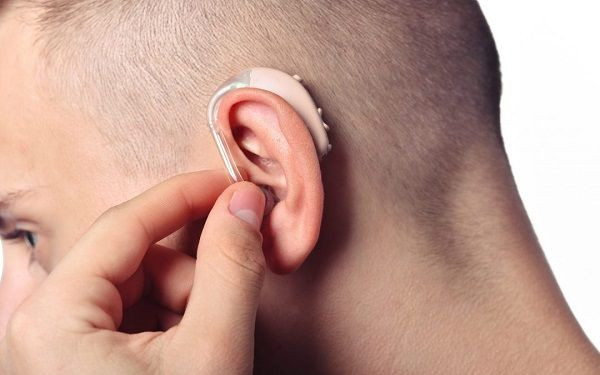Ohio Lawmakers Pushing For Insurance Companies To Cover Children’s Hearing Aids

Democratic lawmakers are in the process of passing a bill that would require health insurance companies to cover children’s hearing aids.
The legislators revealed that the tool which could help children learn and develop is being treated as a cosmetic device by many insurance plans. The bill, called HB 243, hopes to solve that.
Reps Russo and Weinstein talk about their bill, HB243, which reclassifies children hearing aids to help families get insurance to cover the costs. Lawmakers say hearing aids are currently listed as cosmetic devices pic.twitter.com/FbI1LqCb1z
— Andy Chow (@andy_chow) June 6, 2019
Nadia Greenhalgh-Stanley, a mother from Ohio, could hardly believe it when she discovered that her daughter Madeline’s hearing aids weren’t covered by their insurance plan because they were considered cosmetic.
“To hear that something so medically necessary and so necessary for educational development and everything, was treated as Botox was shocking and appalling” stated Greenhalgh-Stanley.
The bill, drawn up by Representative Allison Russo and Representative Casey Weinstein, would require insurance companies in Ohio to cover up to $2,500 for each hearing aid.
Dr. Carrie Spangler, Summit ESC audiologist, participated in a press conference to promote “Madeleine’s Law,” legislation from Ohio Representatives Weinstein and Russo that would require Ohio medical insurance companies to cover a portion of the cost of children’s hearing aids. pic.twitter.com/tCj2xxUUp6
— Summit ESC (@SummitCountyESC) June 6, 2019
This has long been an issue as most insurance companies do not cover hearing aids, therefore, there is a lack of private insurance coverage for them. Currently, there are only 22 states that require insurers to provide full or partial hearing aid coverage for children, and Ohio is not one of them. Because of this, hearing aids have become a luxury that very few can afford as they usually come with a price tag ranging from $1,000 to $4,000 each. Lawmakers in the Ohio Statehouse and parents alike feel that this is unfair to children who need hearing aids in order to learn and live normally. People who’ve suffered hearing loss and did not have access to hearing aids find that their quality of life drops dramatically. These people become isolated and have trouble engaging in life.
Additionally, their personal safety cannot be guaranteed.
Carrie Spangler, an audiologist and educational advocate, explained that children with hearing loss could experience a lot of challenges at school. She further stated, “So, if we don’t provide the foundational tool of hearing aids which would amplify that sound, in addition to the supports they need for education, they’re going to miss 70-80 percent of their academic instruction. Which is huge.”
Russo and Weinstein have stated that this bill will help the state to avoid other educational and medical expenses. Fortunately, the bill has received some bipartisan support since its proposal.
© Copyright IBTimes 2024. All rights reserved.





















